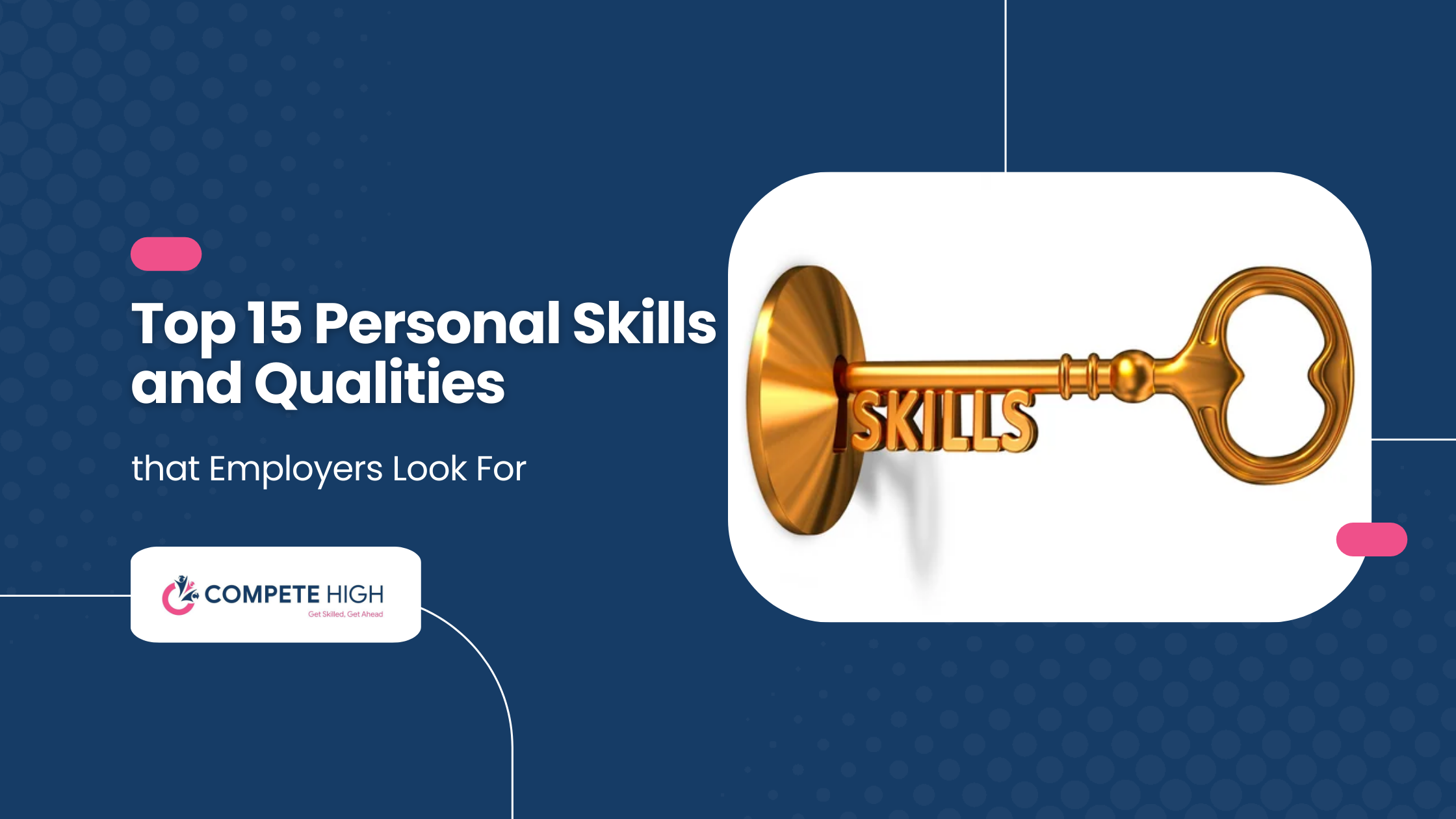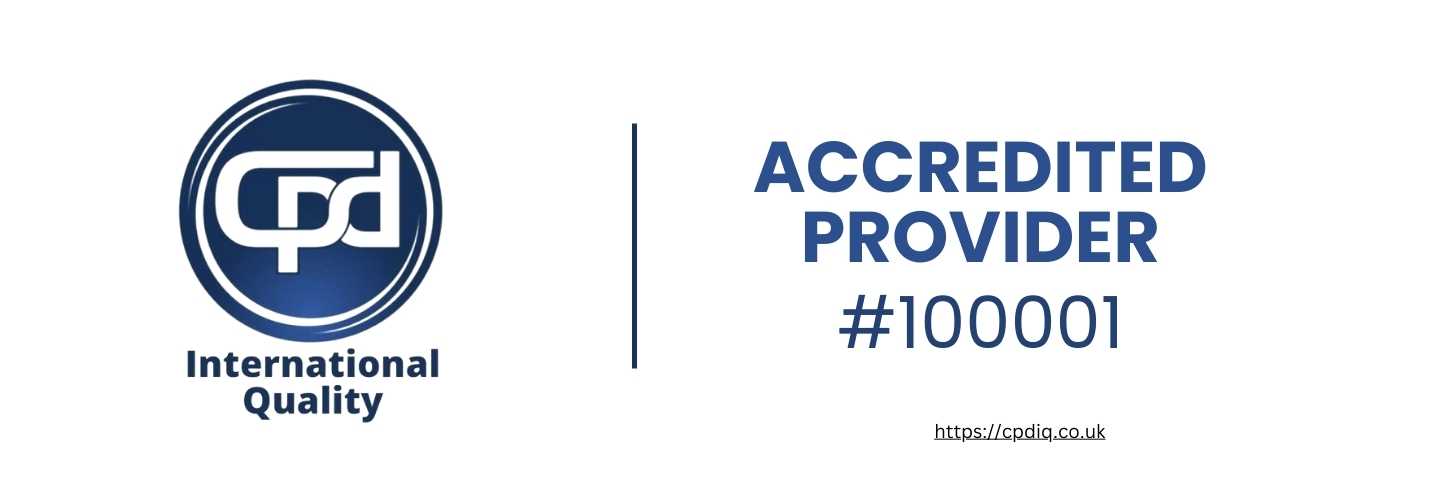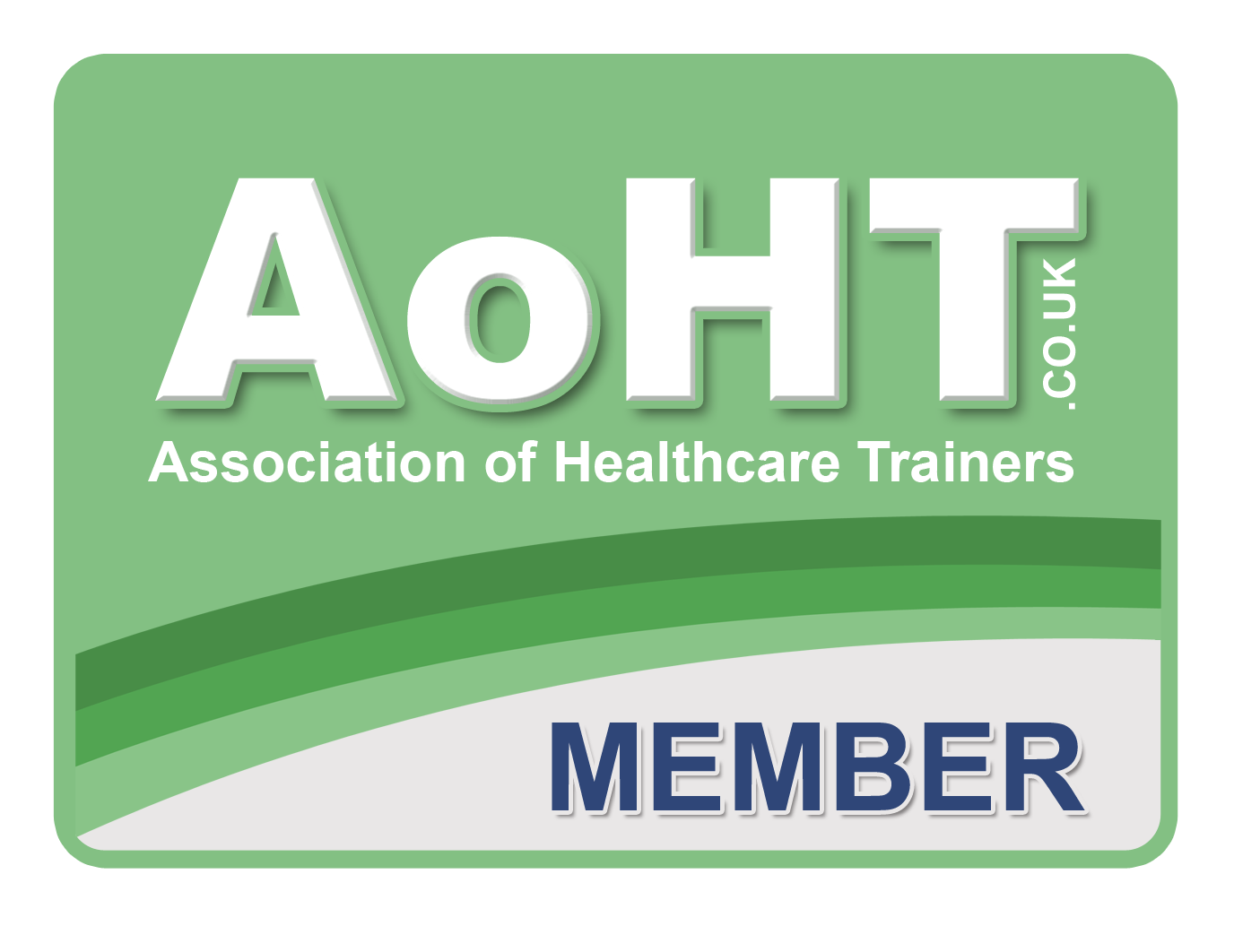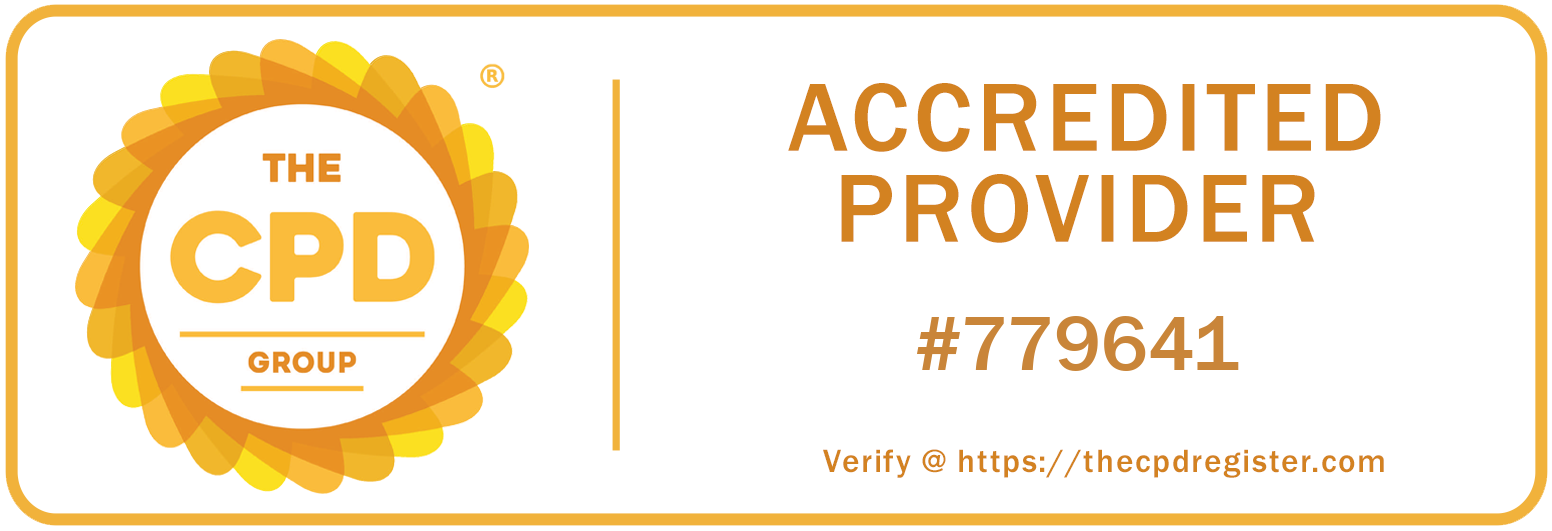
Skills and qualities play a crucial role when it comes to securing your ideal job. It’s easy to focus heavily on technical skills, qualifications, and industry-specific knowledge. While those are undeniably important, employers across the UK are increasingly looking beyond what’s written on your certificates. They want to know who you are as a person, how you approach challenges, and whether you’ll fit into their workplace culture.
This is where personal skills and qualities come in. They shape how you interact with colleagues, respond to problems, and contribute to a team. In many hiring situations, these traits can tip the balance in your favour — sometimes even outweighing your professional expertise or professional strengths.
Whether you’re a recent graduate, a career changer, or an experienced professional aiming for promotion, mastering and showcasing these skills and qualities can significantly increase your employability. In this blog, we’ll break down 15 of the most valued personal skills and qualities employers look for, explain why they matter, and share practical tips to help you demonstrate them effectively. You’ll also find a helpful skills and qualities list to guide your personal development.
Quick Overview
In today’s competitive UK job market, having the right qualifications isn’t enough — employers also want to see the personal skills and qualities that show you’re a well-rounded, adaptable, and collaborative team member. This blog explains the difference between personal and professional skills, why both matter, and how to present them effectively on your CV.
Whether you're starting your career or aiming for a promotion, this guide covers:
✅ What personal skills and qualities are, and how they differ from professional skills
✅ 15 essential personal skills and qualities to boost your CV and job applications
✅ Practical examples to help you showcase your strengths confidently
✅ Tips for developing these attributes through courses, experience, and reflection
✅ UK-specific employer expectations and common CV mistakes to avoid
We’ll also explore what are personal skills, what are professional skills, and share relevant skills and qualities examples to help you reflect on and strengthen your own profile.
What Are Personal Skills and Qualities?
Personal skills refer to the soft skills you bring into the workplace — abilities that influence how you work, communicate, and solve problems. Unlike technical or professional skills, which are tied to specific roles or industries, personal skills are transferable across careers and are vital in any job setting.
Personal qualities, on the other hand, are your natural traits and attitudes. These are the qualities that define your personality and approach to work, such as resilience, integrity, and empathy. While some are innate, many can be developed through life experiences, reflection, and training. Together, these skills and qualities help shape your overall employability.
Personal skills and qualities examples:
- Skill: Time management — being able to plan your day and meet deadlines effectively.
- Quality: Reliability — consistently showing up on time and completing your work to a high standard.
These skills and attributes work together to create a well-rounded professional who can adapt to different roles and thrive in various work environments.
Why Personal Skills and Qualities Matter to Employers
Employers in the UK often operate in competitive, fast-moving markets. In such environments, technical or professional skills may get your foot in the door, but your personal skills and qualities determine whether you’ll succeed long-term.
Some reasons they’re so important include:
- Team cohesion: A highly skilled person who can’t collaborate effectively can disrupt workflow.
- Client relationships: Many industries — from healthcare to finance — rely on interpersonal skills and attributes to build trust with clients and customers.
- Adaptability: Businesses face constant change, and employees with resilience and flexibility can navigate uncertainty without losing productivity.
- Problem prevention: Strong communication, empathy, and attention to detail can help spot and solve issues before they escalate.
In fact, according to LinkedIn’s Global Talent Trends report, 92% of hiring managers say soft skills are as important or more important than hard skills.
How Employers Assess These Skills
Employers don’t just take your word for it when you claim to be a “great communicator” or “highly adaptable.” They have methods for evaluating your skills and qualities at multiple stages of recruitment and employment:
CV and Application Forms
Use of action verbs, concise language, and evidence-based examples can reveal a lot about your attention to detail and communication style. Highlighting personal skills for CV effectively can make a strong first impression. A well-presented skills and qualities CV can set you apart from other candidates.
Cover Letters
How you articulate your motivation and fit for the role demonstrates clarity of thought, enthusiasm, and written communication ability. This is also a great place to emphasise a few standout items from your list of skills and qualities that are relevant to the role.
Interviews
Through behavioural questions (e.g., “Tell me about a time you dealt with a difficult colleague”), employers can assess problem-solving, empathy, and teamwork skills. These are often key professional skills examples that you should prepare in advance to discuss confidently.
Assessments and Tests
Situational judgement tests, group exercises, and psychometric testing measure collaboration, decision-making, and logical reasoning — all essential skills and qualities for success in the workplace.
On-the-Job Performance
Even after hiring, probation periods are used to monitor whether your daily behaviour reflects the skills and qualities you claimed to have.
The Link Between Personal Skills and Career Growth
Personal skills and qualities don’t just help you land a job — they’re essential for career progression. In the UK’s competitive job market, promotions often go to those who can lead teams, manage client relationships, and maintain productivity under pressure.
For example:
- A junior software developer who consistently meets deadlines, communicates effectively, and collaborates with designers is more likely to be trusted with leadership responsibilities.
- A nurse who balances clinical skills with empathy and calmness under stress will be seen as an asset for senior roles in patient care management.
This is why investing in personal development is just as important as technical training. You can attend workshops, seek mentorship, or take part in Continuing Professional Development (CPD) programmes to strengthen these capabilities and expand your list of skills and qualities over time.
Preview of the Skills We’ll Cover
Before we dive deeper, here’s a quick look at the 15 personal skills and qualities we’ll explore — these are key skills and qualities for a CV, personal development, and long-term career growth.
- Communication Skills
- Teamwork
- Problem-Solving
- Adaptability
- Work Ethic
- Emotional Intelligence
- Leadership Potential
- Time Management
- Creativity and Innovation
- Attention to Detail
- Resilience and Stress Management
- Negotiation Skills
- Self-Motivation
- Conflict Resolution
- Positive Attitude
These personal skills and qualities form the foundation of what employers across the UK look for in candidates. Whether you're updating personal resumes or preparing for interviews, the following examples of skills and qualities will help you stand out.
1. Communication Skills
Strong communication skills are among the most valued traits in any profession. They go beyond just speaking clearly — they encompass listening, writing, presenting, and tailoring your message to different audiences.
Why it matters:
In the UK workplace, miscommunication can lead to costly mistakes, lost clients, and internal tension. Whether you’re a care assistant explaining a patient’s condition to a nurse or a project manager briefing stakeholders, clear and concise communication ensures understanding and trust.
How to demonstrate it:
- On your CV personal skills section, mention times you delivered a presentation or wrote a report that influenced decisions.
- In interviews, maintain eye contact, speak clearly, and avoid filler words.
- Practise active listening by summarising others’ points before responding.

2. Teamwork
No matter your role, you will almost always need to collaborate. Teamwork involves sharing responsibilities, respecting diverse perspectives, and working towards common goals.
Why it matters:
UK employers value collaborative employees because they drive innovation and efficiency. In sectors like healthcare and social care, a lack of teamwork can directly affect people’s wellbeing.
How to demonstrate it:
- Provide skills and attributes examples of projects where your input supported others.
- Use phrases like “we achieved” instead of “I achieved” when describing team efforts.
- Show willingness to step in and help, even when it’s not part of your job description.
3. Problem-Solving
Problem-solving means identifying issues, analysing options, and finding effective solutions. It requires logical thinking, creativity, and the ability to stay calm under pressure.
Why it matters:
Employers want staff who can work independently and think on their feet. In UK industries like finance, IT, and healthcare, quick problem resolution can save money, resources, and even lives.
How to demonstrate it:
- During interviews, use the STAR method to describe challenges you’ve overcome.
- On your cv skills and qualities section, mention times you resolved issues that prevented delays or saved costs.
4. Adaptability
Adaptability is your ability to adjust to changes quickly and effectively.
Why it matters:
The UK job market is fast-paced. Whether it’s post-Brexit regulatory changes or hybrid working shifts, adaptability supports long-term success.
How to demonstrate it:
- Highlight experience in learning new tools or stepping into unfamiliar roles.
- Emphasise adaptability in both personal and professional skills on your CV.
5. Work Ethic
Work ethic means being reliable, consistent, and dedicated.
Why it matters:
A strong work ethic builds trust and shows employers they can depend on you.
How to demonstrate it:
- Share examples of going above your job duties.
- Include awards or recognitions in your professional skills for CV section.
6. Emotional Intelligence
Emotional intelligence (EQ) includes understanding and managing your own emotions as well as others’.
Why it matters:
In the UK’s diverse work culture, EQ helps reduce conflict and build strong relationships.
How to demonstrate it:
- Highlight times when you de-escalated difficult situations.
- Show empathy and emotional awareness in interviews.

7. Leadership Potential
Leadership isn't just about titles — it’s about initiative and influence.
Why it matters:
UK employers favour candidates who can take charge when needed, even informally.
How to demonstrate it:
- Mention leadership roles or times you mentored others.
- Use action words like “led” or “coordinated” in your personal skills for resume section.

8. Time Management
The ability to prioritise and meet deadlines without sacrificing quality.
Why it matters:
Poor time management affects results, while good habits support high performance.
How to demonstrate it:
- Give examples of managing multiple deadlines.
- List time management as part of your skills and qualities CV section.
9. Critical Thinking
Thinking critically means making decisions based on logic, not emotion.
Why it matters:
This skill is vital in UK workplaces for ethical, informed decision-making.
How to demonstrate it:
- Include examples where you assessed data to make recommendations.
- In interviews, explain your decision-making process clearly.
10. Creativity
Creativity fuels innovation and helps solve problems in unique ways.
Why it matters:
Employers across sectors seek creative thinkers to stay competitive.
How to demonstrate it:
- Mention projects where your ideas made a difference.
- Showcase any portfolios or creative achievements.
11. Attention to Detail
A sharp eye ensures quality, especially in data-heavy or regulated industries.
Why it matters:
In fields like law, healthcare, or finance, small mistakes can have big consequences.
How to demonstrate it:
- Share examples of high-accuracy work.
- Include quality assurance or proofreading tasks under your professional skills for CV.
12. Resilience
Resilience means bouncing back from setbacks with focus and positivity.
Why it matters:
UK employers value employees who can stay calm and productive under pressure.
How to demonstrate it:
- Discuss times you adapted to challenging circumstances.
- Mention how you developed resilience through CPD or personal growth.
13. Interpersonal Skills
These involve building relationships and resolving conflicts with tact and empathy.
Why it matters:
Interpersonal strength supports team harmony, client trust, and productivity.
How to demonstrate it:
- Include examples of collaboration with diverse groups.
- Discuss conflict resolution or communication techniques used.
14. Self-Motivation
Being proactive and driven without external pressure.
Why it matters:
UK employers seek employees who take ownership of their tasks.
How to demonstrate it:
- Talk about self-started initiatives.
- Highlight ongoing learning or improvement efforts.
15. Professionalism
This includes punctuality, integrity, respect, and accountability.
Why it matters:
Professionalism builds your reputation and fosters trust within the organisation.
How to demonstrate it:
- Provide references or feedback to confirm professional conduct.
- Share how you upheld standards in tough or high-pressure scenarios.
These 15 skills and qualities aren’t just valuable on paper — they should be clearly demonstrated in interviews, personal resumes, and daily workplace behaviour. Whether you're building your CV personal skills section or applying for leadership roles, reflecting on your personal and professional skills will help you present a stronger, more well-rounded application.
How to Develop These Skills and Qualities
Possessing these skills and qualities is one thing — but continuously improving them is what sets you apart in the UK job market. Whether you're focused on technical knowledge or soft skills like teamwork and communication, investing in both personality skills and practical expertise ensures long-term success. Here’s how to work on each area so you’re always ahead of the competition.
1. Take Relevant Courses and Training
Formal training, whether online or in person, can significantly boost both technical and soft skills. For UK learners, short CPD-certified courses or vocational qualifications can be a quick way to enhance your work skills for CV and stand out in applications. For example, a communication course can develop good personal skills, such as public speaking and active listening, while a leadership training programme can improve professionalism skills and prepare you for managerial roles.
To build a strong foundation, consider exploring a professional skills list relevant to your industry and identifying areas for growth. Understanding what is professional skills and how to apply them in real-life situations is essential to career progression.
2. Gain Practical Experience
Theory alone won’t make you stand out — you need hands-on experience. Consider volunteering, internships, or shadowing opportunities. Even in non-paid roles, you’ll develop transferable skills and qualities such as teamwork, problem-solving, and time management.
This also allows you to apply your personal skills definition in real scenarios — skills like adaptability, communication, and leadership that appear across every list of personal skills employers value. These are excellent additions to your personal qualities CV section or cover letter.
3. Seek Constructive Feedback
Ask supervisors, colleagues, or mentors for honest feedback about your strengths and areas for improvement. This not only helps you grow but also shows employers you value continuous learning and professionalism skills.
Feedback can also help you refine your understanding of what is personal skills and which traits fall under examples of personal skills — such as empathy, resilience, or conflict resolution — all of which are increasingly sought after in the UK job market.
4. Practise Self-Reflection
Take time to assess your performance after projects or tasks. Identify what worked well, what could have been improved, and how you might approach similar situations in the future. This ongoing process of reflection helps reinforce both personal and professional skills, and it’s a habit that demonstrates maturity and growth.
By reflecting regularly, you can gradually build and refine a tailored list of personal skills to highlight in interviews, helping you present a clearer picture of your skills and qualities in action.
5. Keep Up with Industry Trends
Whether you work in healthcare, IT, finance, or retail, staying informed about changes in your field ensures your skills and qualities remain relevant. Subscribe to UK-based industry newsletters, join professional associations, or attend networking events to understand shifts in expectations and trends in both soft and hard skills.
This will also give you a competitive edge when updating your personal qualities CV section or when explaining your understanding of what is professional skills and how you've stayed up-to-date with evolving workplace needs.
Knowing what is personal skills, along with the difference between personal and professional abilities, helps you create a compelling CV. Including relevant examples of personal skills, understanding where your strengths lie within a professional skills list, and continuously working to improve your skills and qualities will give you a clear advantage — both in job applications and in your ongoing career development.
UK Job Market Considerations
While these skills and qualities are globally valuable, the UK job market places particular emphasis on certain areas:
- Communication and interpersonal skills are consistently ranked among the top personal attributes for a job that employers want, according to the Confederation of British Industry (CBI) employer surveys. These are classic examples of professional skills that also reflect well in the personal qualities for CV section.
- Adaptability and resilience are increasingly important due to the fast pace of technological change and evolving work arrangements, such as hybrid and remote working. These traits are considered essential personal attributes for CV and demonstrate flexibility and emotional intelligence.
- Professionalism and integrity are vital in sectors like finance, law, healthcare, and education, where public trust is paramount. These should feature prominently in any list of professional skills or professional skills for resume entries, especially if you’re applying for roles where ethics and responsibility are key.
When writing your CV or preparing for an interview, it helps to include a clear example of skills of a person in context — such as how a personal skill like time management helped you meet a tight deadline, or how your attention to detail prevented a costly mistake.
Common Mistakes to Avoid When Showcasing Skills:
- Being too vague: Simply stating you’re a “good communicator” isn’t enough — back it up with specific achievements or feedback from previous roles. This supports your personal attributes for a CV with evidence.
- Overloading your CV with every skill you can think of: Focus on the most relevant entries from your list of professional skills and tailor them to the job description. Highlight only the skills and qualities that directly align with the role.
- Ignoring soft skills in favour of technical ones: Employers often value a balance between both. Strong personal qualities for CV such as empathy, adaptability, and resilience are just as important as hard skills, especially in people-facing or high-pressure roles.
Final Thoughts
Developing and demonstrating the right personal skills and qualities can be the deciding factor in landing your next role or promotion in the UK. Employers aren’t just hiring someone who can do the job — they’re hiring someone who can grow with the organisation, adapt to changes, and contribute positively to the workplace culture through strong personal skills and attributes.
If you’re looking to improve these personal qualities and skills, start with small, actionable steps. Enrol in a skills-based course, take on challenges at work that push you out of your comfort zone, and consistently seek feedback. This will help you build a solid list of key skills for a CV that highlights your best skills and personal attributes.
💡 Call to Action: If you want to gain a competitive edge in the UK job market, consider enrolling in our tailored online training programmes. Our courses are designed to help you strengthen your personal skills in CV and qualities for resume, so you can confidently present yourself as the ideal candidate in any interview.











